You gotta give 'em hope.
This was the message of gay rights activist Harvey Milk who eternally pushed for optimism despite the odds. It's also the mantra of Andrew Ahn, the director of Driveways, who in a universe under lockdown has had some time to consider the message he, as an artist, wants to send.
Ahn decided to push back against the "detached, almost cynical" view he had seen trending in independent filmmaking. And Driveways certainly succeeds in that regard. The hopeful drama, recently released on VOD, centers on an Asian-American child, Cody (Lucas Jaye), who strikes up an unlikely friendship with his older, more conservative white neighbor, Del (Brian Dennehy). In a time of fear and divisiveness, the story of this odd couple resonates.
"I'm very glad that I could make a film that feels like a balm, and comfort ensues," Ahn said.
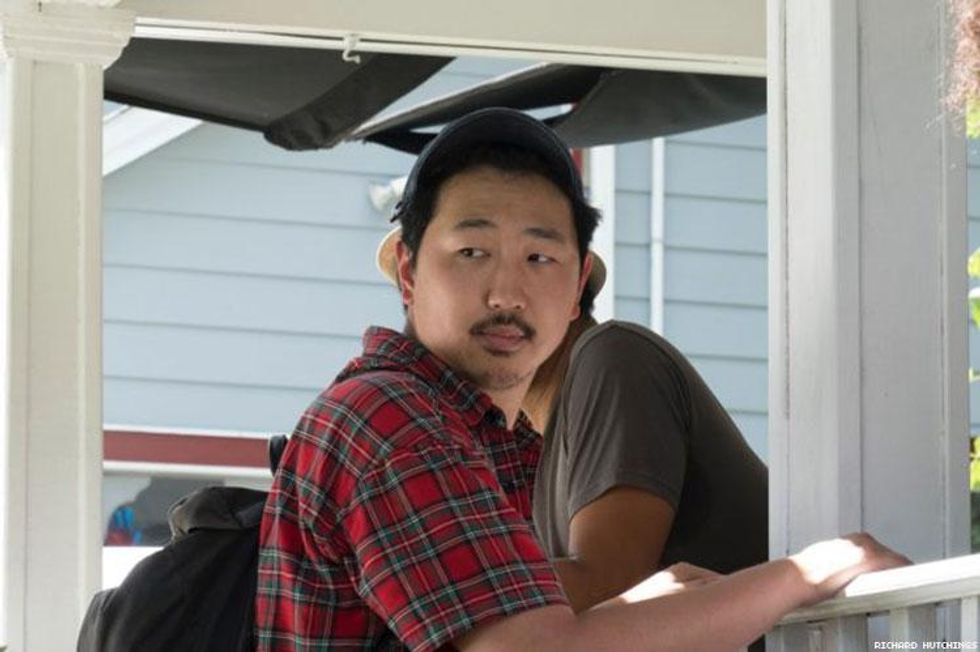
Driveways marks somewhat of a departure from Ahn's previous film, Spa Night, in which a gay Korean-American teen comes to terms with his sexuality in Los Angeles. It was producer Joe Pirro who first gave Ahn the Driveways screenplay by Hannah Bos and Paul Thurteen. Pirro had the "vision" to realize that the "filmmaker who made a film about having gay sex in the Korean spa should make Driveways," Ahn said with a laugh.
But there are also many parallels between the projects. "It's a very human story," Ahn said of Driveways. Like Spa Night, it is also a family drama; Driveways focuses on the relationship between a boy and his mother, Kathy (Hong Chau, Downsizing, Watchmen), as they clean out her sister's home after her untimely death and sort out other troubles in the process. The "loneliness" of the sons in each film is another running thread.
As Ahn remarked one day to his cinematographer, "I think we need to out-Spa-Night Spa Night, because Driveways is Spa Night without the gay sex." He joked, "We don't need gay sex in every movie, I suppose." (Although more would be nice.)
(Related: Spa Night Puts Gay Asian-Americans Front and Center)
However, there are queer themes in Driveways. Ahn would not characterize the young Cody as having any LGBTQ identity. ("That's not my place as a filmmaker," he asserted.) But as a gay man himself, he empathized with the experience of a "sensitive" child who would rather read and be with his mother than wrestle with the meat-headed neighbor boys.
Moreover, it's Cody's status as an outsider that leads him to strike up a friendship with Del, who allows the boy a place to read on his porch and offers him the wisdom of his years. Their bond only grows from there. For Ahn, this relationship was a kind of "wish fulfillment."
"I wish that when I were younger, someone would be that nice and be that wise and articulate that kind of regret that they might have for how they used to live their lives," Ahn said.
"When I was a child, I often thought it's me against the world. There's this like older generation of people just don't understand me. And so it felt really satisfying to have that character, Del, really give Cody this gift."
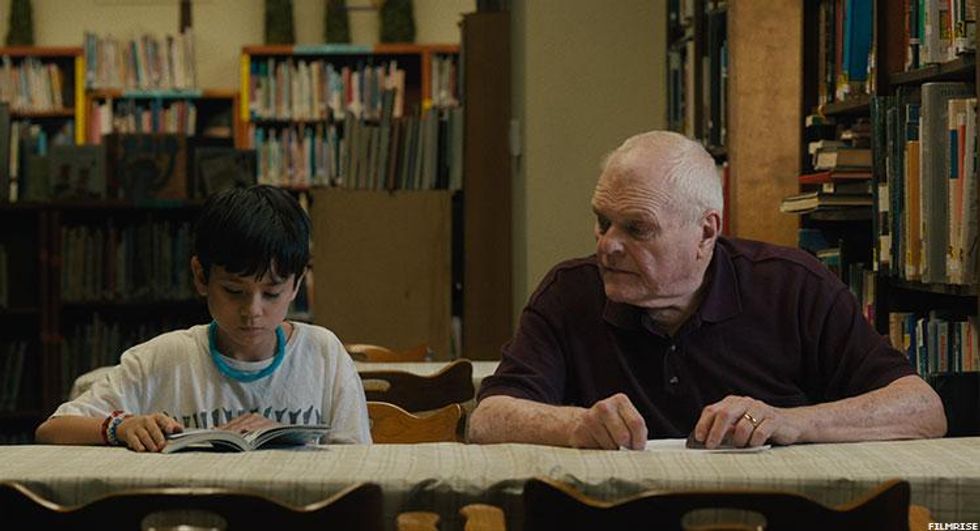
In Driveways, Ahn steered the story away from the explosive ideological divides now seen all too often in the real world. That "would distract from what was really vital," which is "what brings these people together," he said.
However, Ahn does see the production as a "foot in the door" to having those political conversations. And he did not make a film that was a vacuum from real issues like racism and homophobia.
"I didn't want to create a fantasy world where everything's perfect. I didn't want to create an idealized version of society," Ahn said. "I wanted to portray a world where these stigmas and biases exist and float around us. They surround us in this insidious way where even if we can't always see it or feel it, you know that it's there."
There's no shortage of racial microaggressions in Driveways, particularly from a white female neighbor, Linda (Christine Ebersole), who remarks with disdain upon the area's growing Hispanic population and "assumes" that Kathy must be related to the house's former occupant because they look alike.
It was Ahn that made the choice to make Kathy and Cody Asian-American. In the script, the pair already "felt like outsiders, and didn't feel super welcome in this town," Ahn said. "I was so inspired by that I decided to externalize that feeling of otherness through Kathy and Cody's race." Surprisingly, Ahn said they "barely had to make any changes" to the screenplay after this casting.
Homophobia is also present in Driveways. Del is dealing with the consequences of historic bias in the form of an estranged lesbian daughter, although he is "atoning for it in some [ways] through his friendship with Cody," Ahn noted. This storyline feels like progress, in contrast with the white neighbor boys, who mock Cody's sensitivity. They also retaliate against it. In one potentially frightening scene, they set off fireworks in his front yard.
Even quiet prejudice, though, "informs the way that we feel about who we are," Ahn said, "in this way that I think gives the film a truth and an authenticity and a real weight. Cody's victories in this film feel like real victories because of what's happening around him."
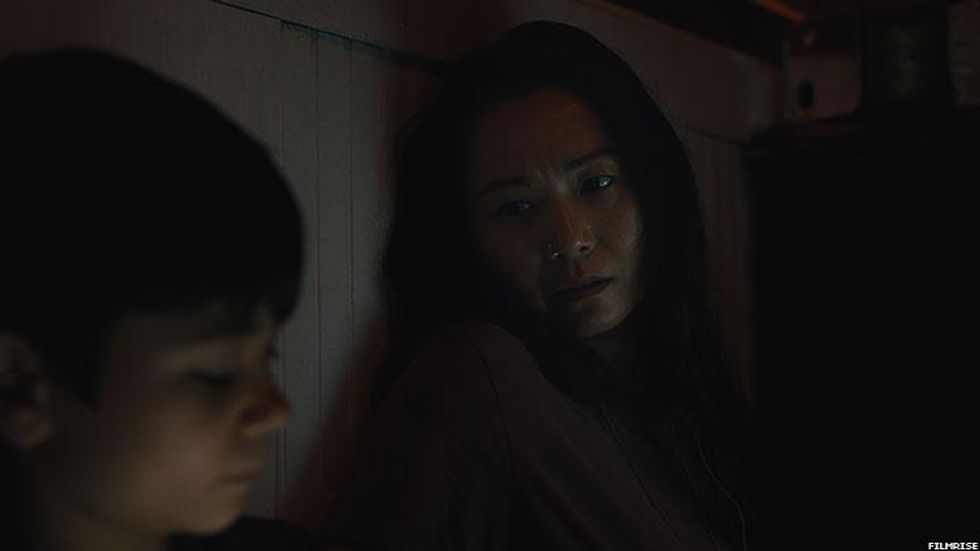
The ghost of Cody's aunt also haunts the film in ways that hint at the impact of bias. When Cody and Kathy first arrive at her house, they discover that every room is filled to the brim with belongings. There's even a dead cat in the bathroom under all the debris. Clearly, she too had felt like an outsider in that town and had responded with hoarding. Many in the real world can relate.
"I think we all build walls to protect ourselves from the harshness that exists [in the world]," Ahn said. "But that's even more reason why I wanted to make Driveways because I think art is this opportunity for us to be vulnerable and to open ourselves up to another point of view. I wanted to create a film that allowed us to put down our walls, and feel safe, and learn about someone else's perspective in a way that could really change us, transform us."
This change of perspective is sorely needed in a world where hate crimes against marginalized groups are on the rise in the U.S. The current health pandemic has only aggravated the finger-pointing at LGBTQ people -- perennial scapegoats for right-wing religious leaders -- as well as a rising tide of xenophobia against Asian-Americans.
Ahn, as a gay Korean-American, stands at the intersection of these identities -- and he's prepared to fight back against hatred.
"I feel very firm in my identities and I think it's because I've really had to fight for them. As a gay person, I really had to fight for my Asian American identity. As an Asian American, I've had to really fight for my gay identity. I really embrace the intersectionality that exists within me," he said.
"The vitriol, the hate that exists in society, I see it affecting my communities in this way that I feel the need to support [them]," he added. "Where I am in my life right now, I'm strong enough to carry that burden for other people and to advocate for those in my community that that might not feel that way."
This strength comes from the communities themselves, he's found. "I think that's what's so beautiful and necessary about community is that it's kind of like, how do we share the load?" said Ahn, who makes a point to check in with others often to help determine "where to allocate our emotional support energy."
"We're all trying to live our best lives," Ahn said. "We're all carrying so much baggage. It's not easy, just existing in this world. Looking for connection, looking for people that exist within our community who understand us is a real path toward happiness."
This path can be seen in Driveways, in which Cody's discovery of a friendship in Del -- and his rejection of those who treat him poorly -- is an example of how "you don't need to be around abusive people. You can find that connection with someone like Del that's healthy and that's good," Ahn said.
"There are the people out there that we might not expect who can lead to really healthy relationships and realizations about ourselves that help us grow, help our community flourish," Ahn concluded.
"His relationship with Del is chosen family and that to me is something that I've learned so intimately through the queer community. I think that it's a lesson that works for everyone."
Driveways is now available to rent or buy on VOD. Watch the trailer below.
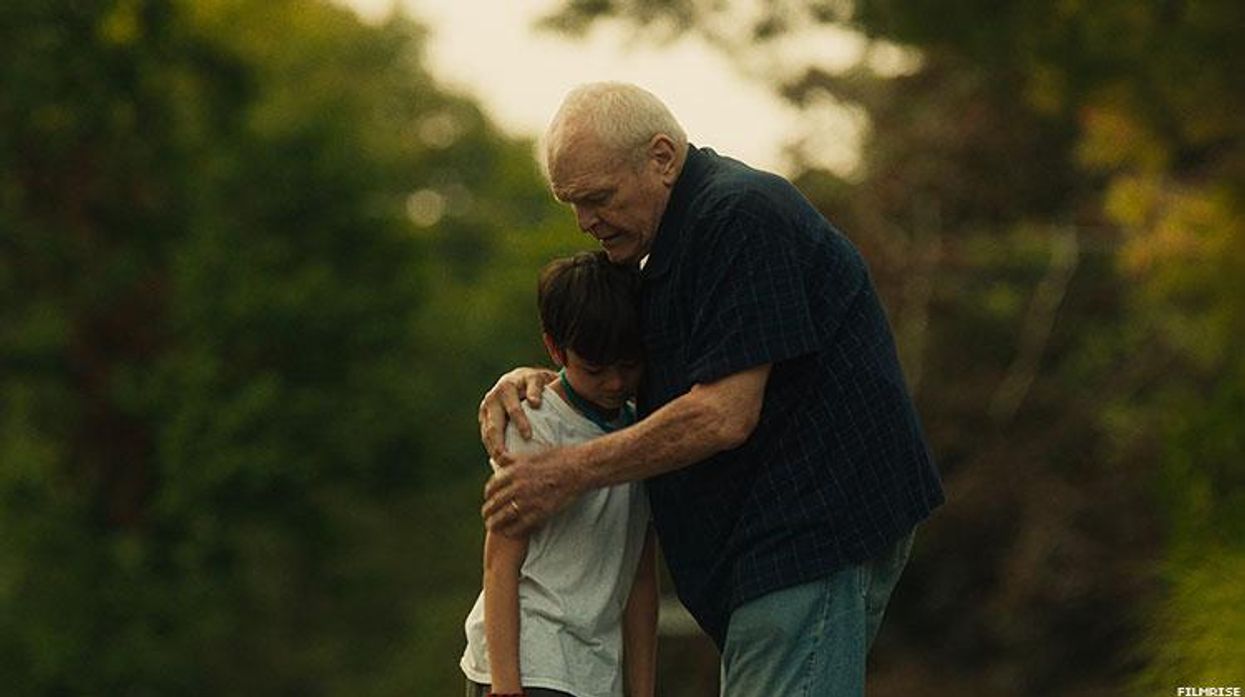






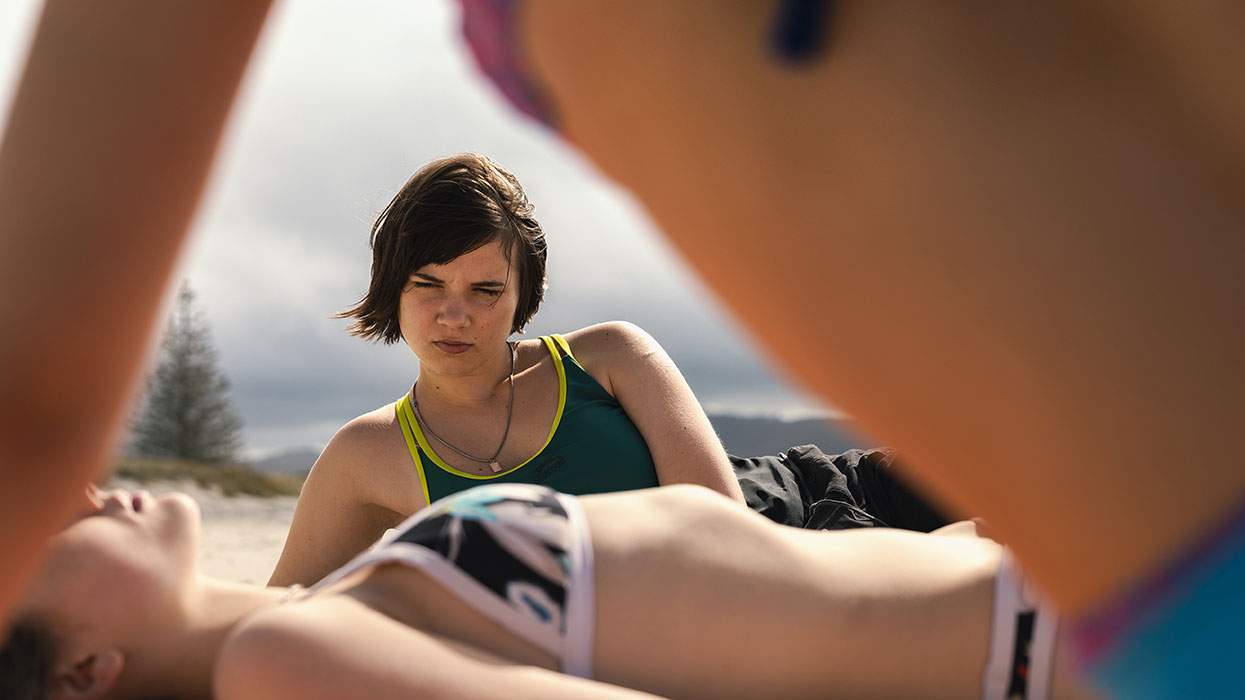
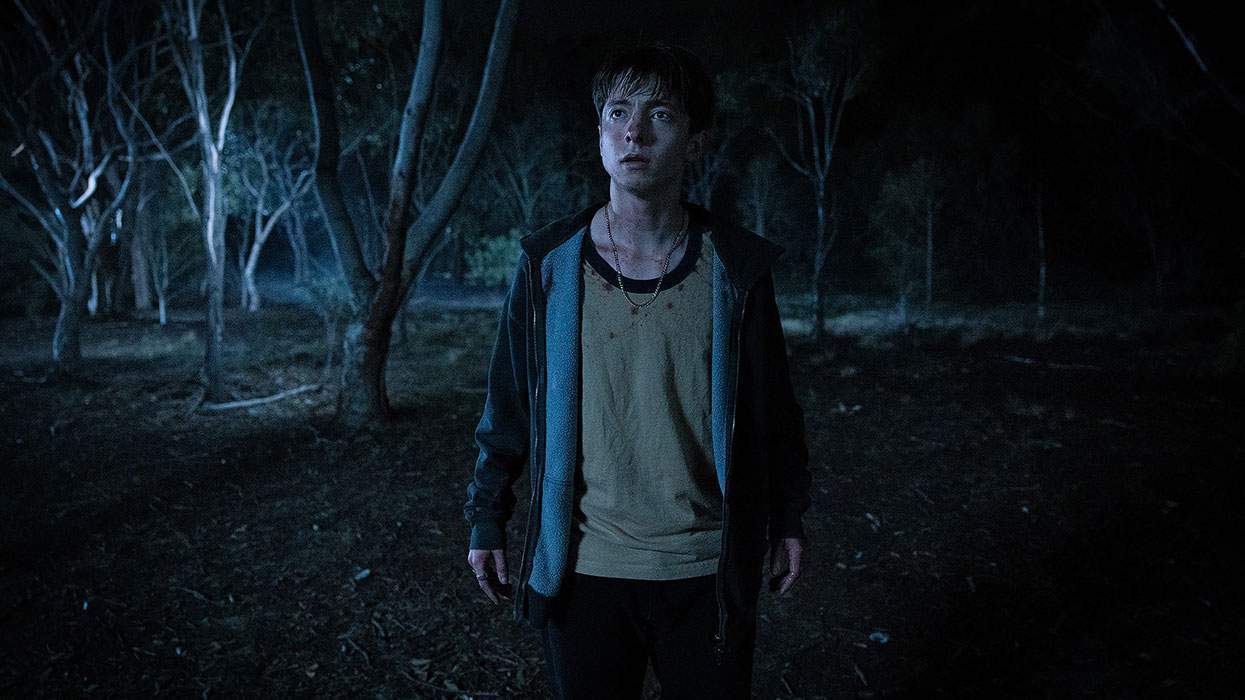






Charlie Kirk DID say stoning gay people was the 'perfect law' — and these other heinous quotes
These are some of his worst comments about LGBTQ+ people made by Charlie Kirk.